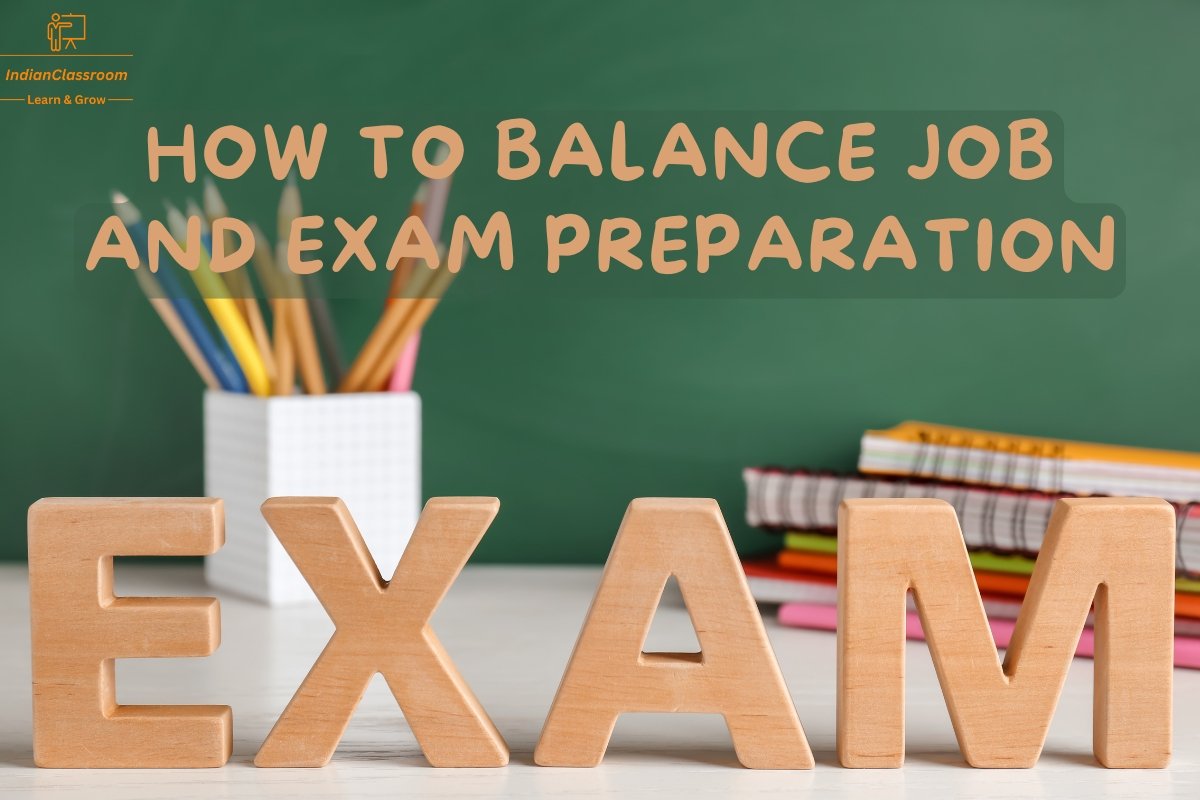NEET PG 2024 Results Declared

Balancing a full-time job and exam preparation can be a daunting task, but with the right strategies, it’s possible to succeed in both. Here’s a comprehensive guide that covers practical tips for working professionals aiming to achieve a work-study balance, including effective study techniques, time management strategies, and more.
One of the key elements of balancing job and exams is creating a study schedule that fits around your work commitments. Study schedules for working people should consider the demands of your job, ensuring that you allocate sufficient time for both work and exam preparation. Make use of weekends and early mornings when you are likely to have fewer distractions.
Time management is crucial for working professionals who are preparing for exams. Prioritize your tasks by breaking down your study material into manageable sections. Set specific goals for each study session and stick to them. This will help you avoid the last-minute rush and reduce stress as the exam date approaches.
When it comes to exam preparation for employees, it’s important to focus on quality rather than quantity. Use study hacks for busy professionals, such as active recall and spaced repetition, to maximize your learning efficiency. Consider using flashcards and summary notes to reinforce key concepts during short breaks at work.
Balancing job and exam prep requires flexibility. Be prepared to adjust your study plan if work demands more of your time during certain periods. On days when your job is particularly demanding, focus on lighter study activities, such as reviewing notes or listening to educational podcasts.
A personalized study plan tailored to your specific needs and schedule is essential for success. This plan should account for your work hours, family commitments, and personal study preferences. By developing a study plan for professionals that fits your lifestyle, you’ll be more likely to stick with it and achieve your exam goals.
Adopting the right study techniques can make a significant difference in your exam preparation. Techniques like mind mapping, summarization, and teaching others can help you better understand and retain information. Additionally, consider using digital tools like study apps that are designed for working professionals to optimize your study sessions.
To achieve exam success for working people, it’s vital to establish a consistent study routine. Consistency is key to retaining information and building confidence. Try to study at the same time each day, and make sure to include short breaks to avoid burnout.
To manage your time effectively, consider integrating study sessions into your daily routine. For example, review notes during your commute or listen to recorded lectures during lunch breaks. By using every available moment, you’ll be able to keep up with your studies without sacrificing your work responsibilities.
Staying motivated while balancing work and studies can be challenging. Set clear goals and reward yourself for achieving them. Surround yourself with supportive peers or colleagues who understand your situation and can offer encouragement.
Finally, remember that preparation is not just about studying. It’s also about maintaining a healthy work-study balance. Ensure you get enough sleep, eat well, and exercise regularly to keep your mind and body in top condition. These professional exam tips will help you approach your exams with confidence and clarity.
Balancing job and exam preparation is undoubtedly challenging, but with the right approach, it’s achievable. By following these working professionals’ exam tips and creating a tailored study plan, you can prepare effectively for exams while maintaining your job responsibilities. Remember, the key is to stay organized, manage your time wisely, and remain flexible in your approach. With dedication and perseverance, you can achieve exam success while continuing to excel in your career.